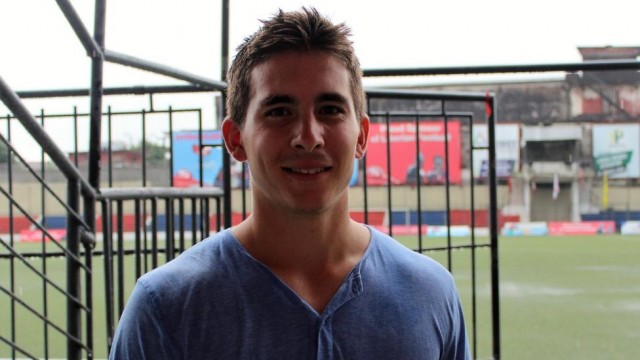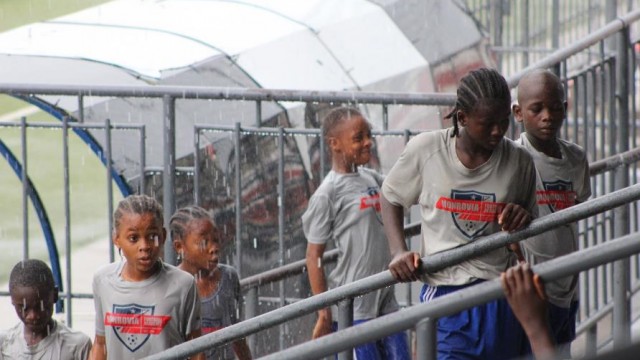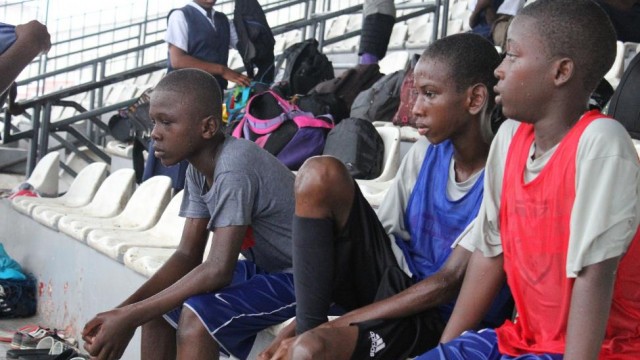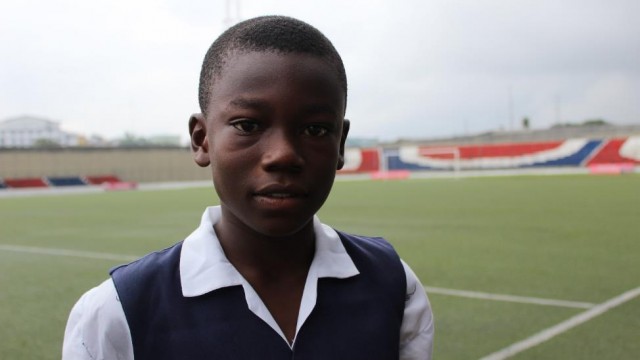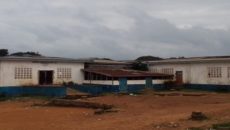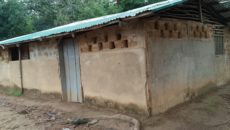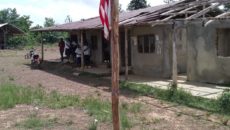MONROVIA, Montserrado County – Liberia is known for producing Africa’s best footballer in George Weah. However, since the era of Weah, the country has yet to produce a star with lasting power to play on Europe’s top teams. This may be due to the lack of any infrastructure within the country to support the growth and development of young footballers.
One institution is attempting to change the trend – the Monrovia Football Academy. Founder William H. Smith, an American, who splits his time between Liberia and the United States, said the MFA is the first school in Liberia to combine formal education with professional football coaching. His goal is to “use football as a mechanism to break down gender barriers and improve academic performance.â€
While there had been other clubs and academies existing in Liberia to train youngsters, Smith said they all generally meet once a week or at the most, twice a week, to play football.
“We’re 100 percent the only entity in Liberia that combines a real quality formal education with football development,†he said with pride. However, despite the name of the institution, Smith said football is only a tool through which his team is trying to address the poor education system and gender inequality.
“It’s called the Monrovia Football Academy but our number one priority is to provide the kids with a quality education,†he added.
In promoting gender equality, MFA currently has 11 girls among its 28 students, but Smith aims to achieve full gender equity regarding the number of girls recruited for the next round. Next year, with 60 students expected to be enrolled, he expressed hope that at least 30 would be girls.
However, the institution has found it difficult to recruit girls.
“We face some serious challenges,†he said. “As you know and everyone knows, most of the girls that are playing [sports in Liberia] are playing kickball.â€
Because of that MFA has brought in prominent women from the Liberian female national team, including one who used to be a captain. The school is also trying to explain to parents of prospective students that their girls do not need any experience playing football; they just need to be interested.
The football academy is conducting a tryout all day today at the BYC field at Lynch Street and UN Drive.
The school itself costs US$100 per year, and that price includes football boots, training gear, jerseys, school uniforms, and textbooks. Students will also receive a L$50 (US$0.56) lunch each day “which is jollof rice, potato greens, really delicious Liberian food,†Smith says. Families experiencing financial difficulties can be offered a scholarship on a case-by-case basis.
On a regular school day, students arrive at 9:00 a.m. and spend the morning period training. At noon, they break for lunch before transitioning to academic classes for the latter part of the day.
Smith said he strives for “top-notch†teachers, paying the starting teacher much higher than the average rate for teachers in Liberia.
Musa Sheriff, who heads the faculty at MFA, graduated from the University of Liberia in 2010 and has taught in several schools across Monrovia, including serving as Vice Principal for Academic Affairs at Muslim Congress High School. Sheriff also briefly lectured at the United Methodist University.
Under Sheriff’s guidance, the curriculum is a modified version of the Ministry of Education’s curriculum, augmented with music, art, and leadership classes, “to make it a bit more dynamic.â€
In the next academic year, the school will add a floating teacher with a background in social work to help students who are struggling and conduct home visits as well.
On the football side, Sekou D. Manubah serves as a co-founder and the Head of Football Operations. A professional footballer, he said he was once a part of the national team in addition to playing in numerous countries including Myanmar.
Manubah said he hopes to bring a different type of football to Liberia, where “most of the guys were not fortunate to start playing a grassroots football.â€
Even though he obtained his Masters in African Studies at Oxford University, the mostly Liberian staff is a result of Smith’s cognizance of his relative inexperience with Liberia.
“I’m the director of the organization but everyone else on the staff is a Liberian and my ultimate goal is to make sure that this is a 100% Liberian initiative,†he explained. “So as we continue to grow, as we become to be more stable as an organization, the goal is ultimately to hire a Liberian director and again make it 100% Liberian.â€
Beyond just running the organization, Smith intends to ensure that there is Liberian ownership and pride about the organization. To achieve that, he has been networking with Liberian diaspora groups in the United States, in addition to courting high profile dynamic young Liberians to serve on the organization’s board.
Smith explained his motivation: “There’s a long history of Americans coming in and saying, you guys don’t know what to do. We have all the answers. And the truth is that they don’t, because they don’t understand the context as well as everyone who lives here and who have always lived here. So on the fundraising side, I think it’s important for Liberians to be proud of this organization and know that it’s also being sourced by Liberians.â€
Already, the Monrovia Football Academy is having an impact. Leon Crawford, a fourth grader, said he has learned things he would not have learned at his previous school, including learning to sing using his diaphragm. For fellow classmate Zeta Kromah, she said being in the school is helping her to aspire to greater heights.
“Of course, I want to become a good football player, and also, I want to become president for the nation,†Kromah said as she flashed a smile.
Both students said they are not bothered by the longer than usual length of the school because they would usually play with their friends after school anyway. Here, they would have a beautiful artificial turf field to play on.
Smith said he hopes to have even more impact on the students’ lives: “Eventually, we want to make it a residential academy, and if we can do that, then we can really put them in a stable and structured environment at all times and make sure they can fulfill their potential both on the field and off the field.â€
Featured photo by Lloyd Massah

